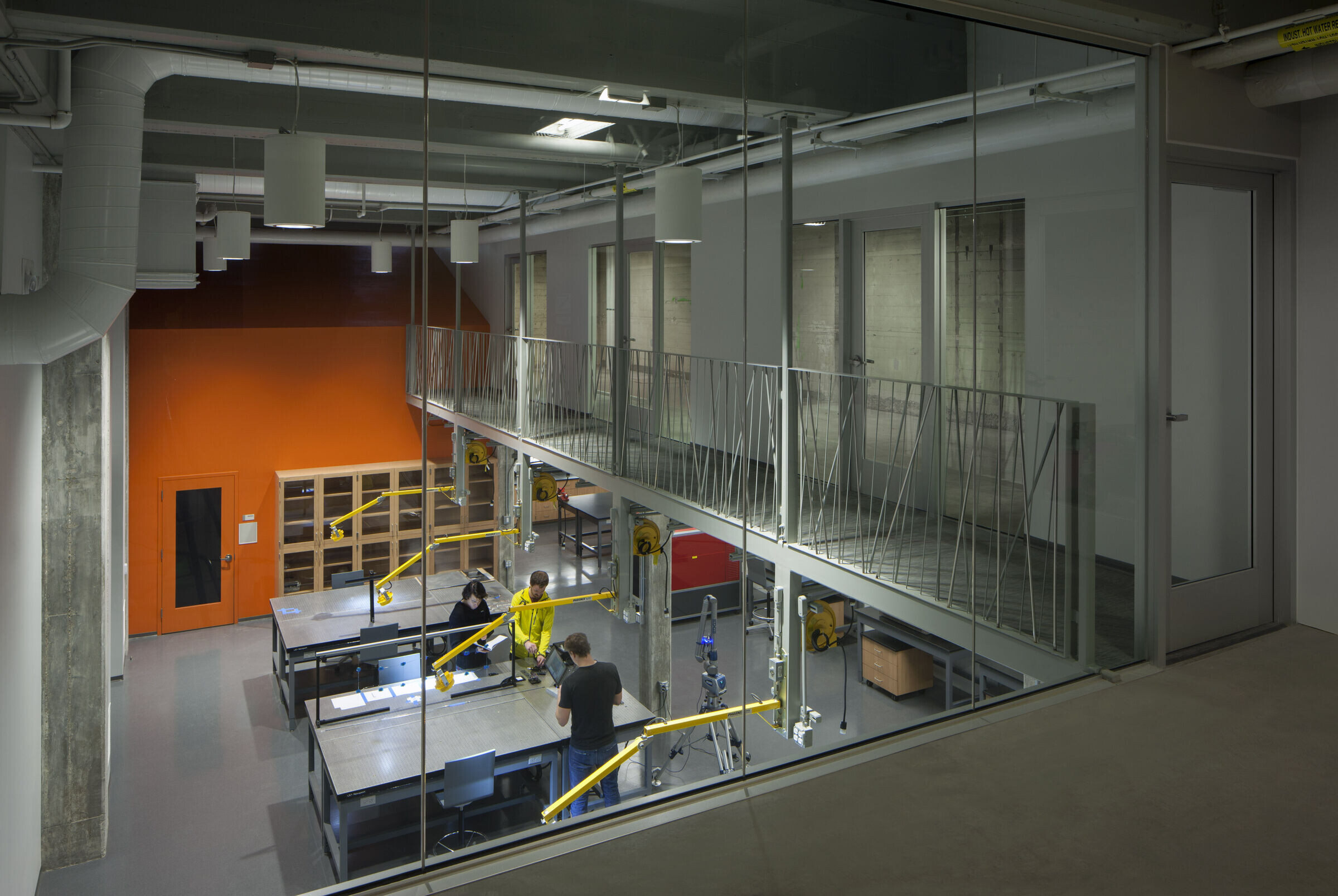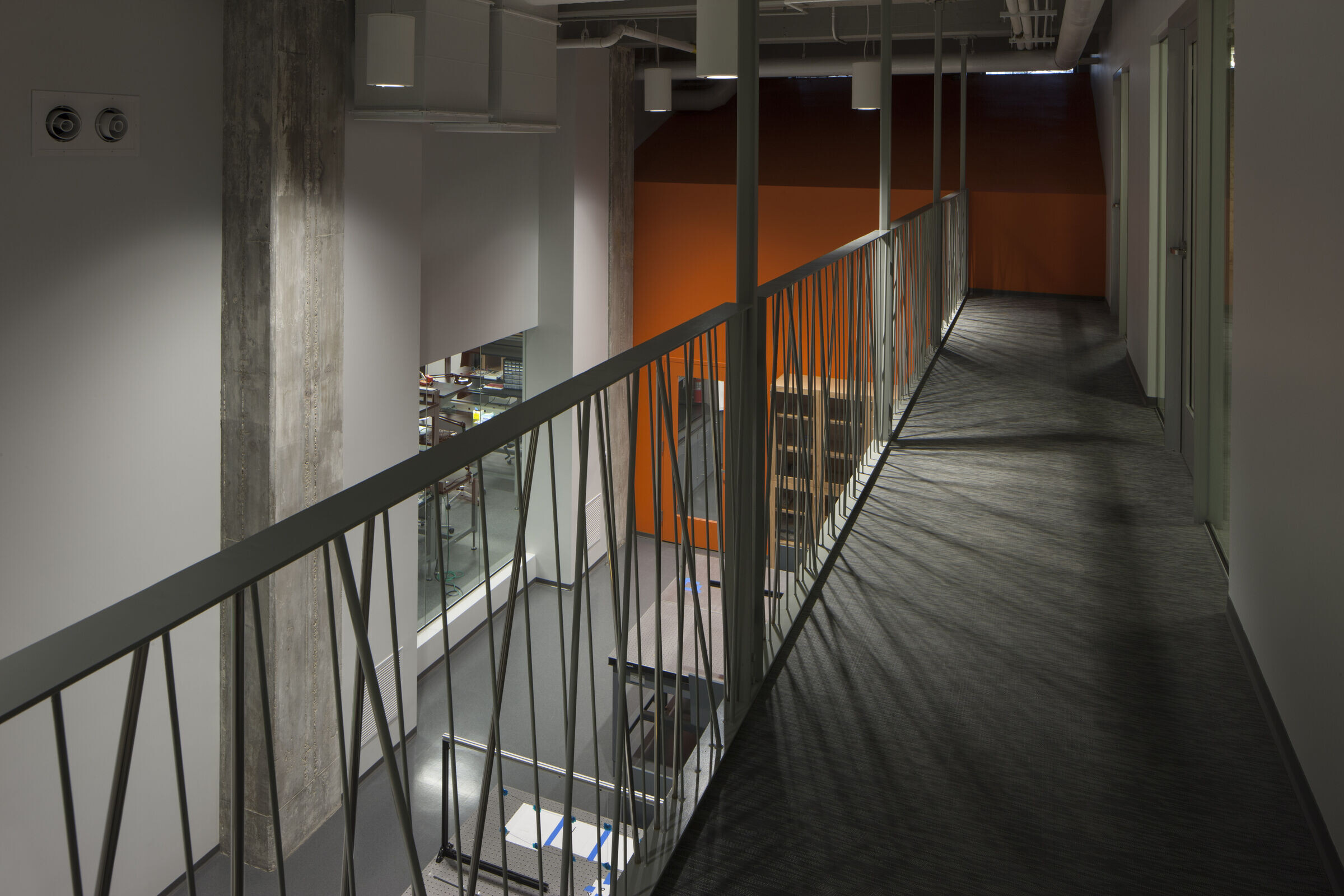Of the many specialized research facilities CO Architects has design for California Institute of Technology (Caltech), one of the most compelling for futuristic breakthroughs is the Space Solar Power Initiative (SSPI). engineering building into a modern, interdisciplinary research facility.
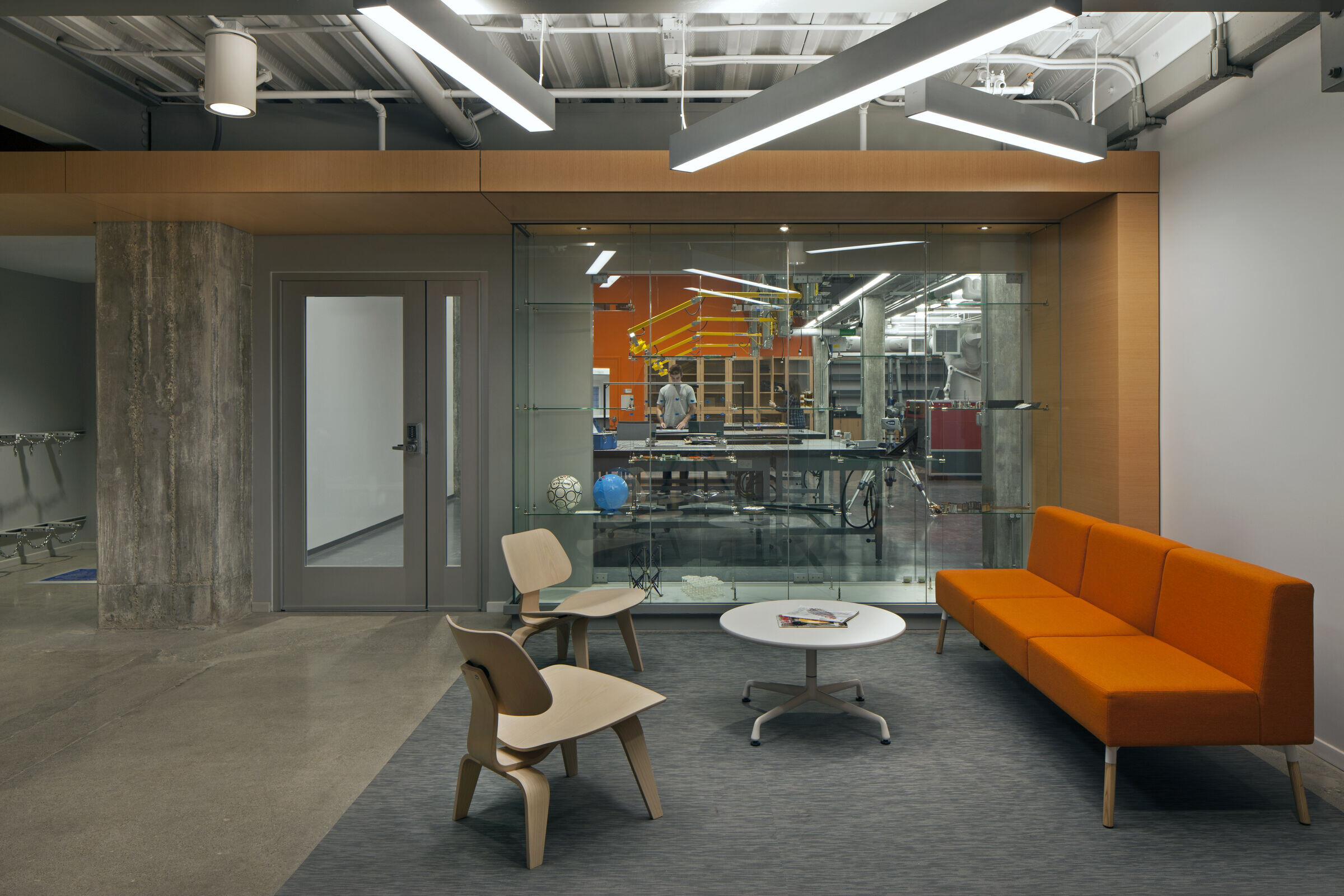
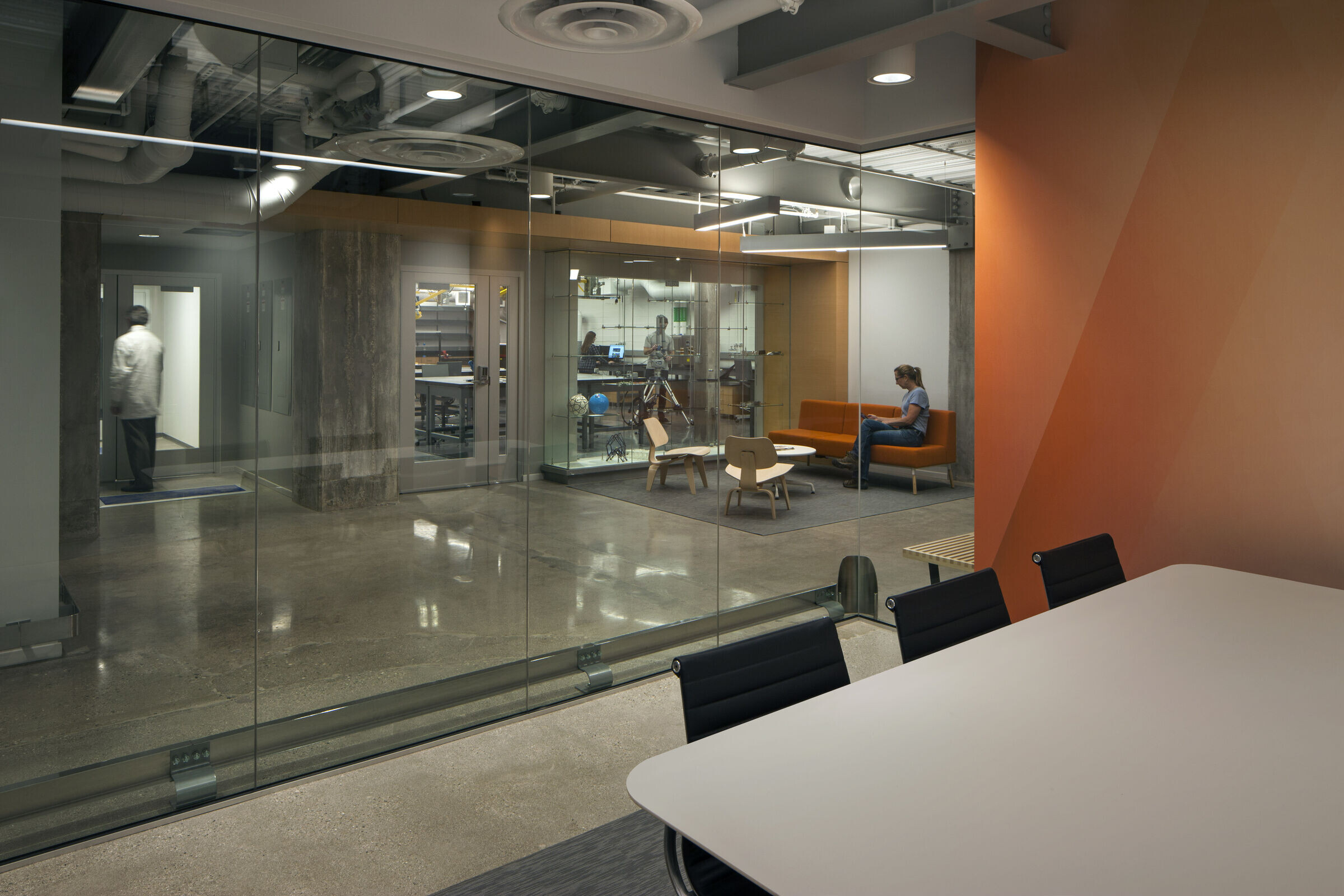
In 2015, Caltech received a grant from Northrup Grumman funding SSPI. Its purposed is to develop the scientific and technological innovations necessary to enable a space-based solar power system that will be capable of generating electric power at a cost comparable to fossil-fuel power plants. The system consists of thin-film, high-efficiency photovoltaics laminated onto ultralight fabric structures that, when deployed in space, will collect and transmit power back to Earth using microwave energy.

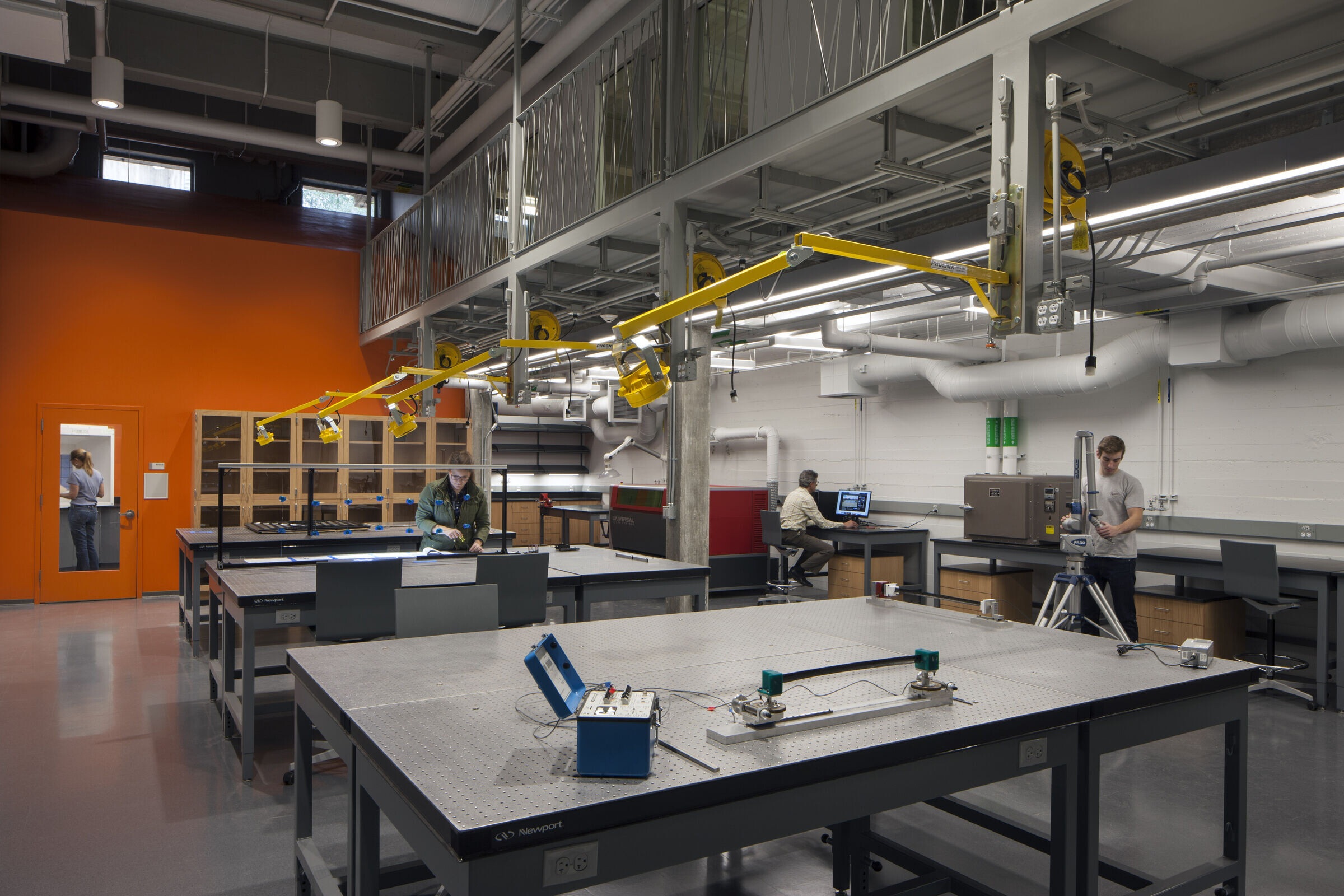
The 6,650-square-foot SSPI laboratory suite accommodates a diverse range of activities, including assembly and structures integration areas, chemistry and optics labs, and conference and meeting rooms.
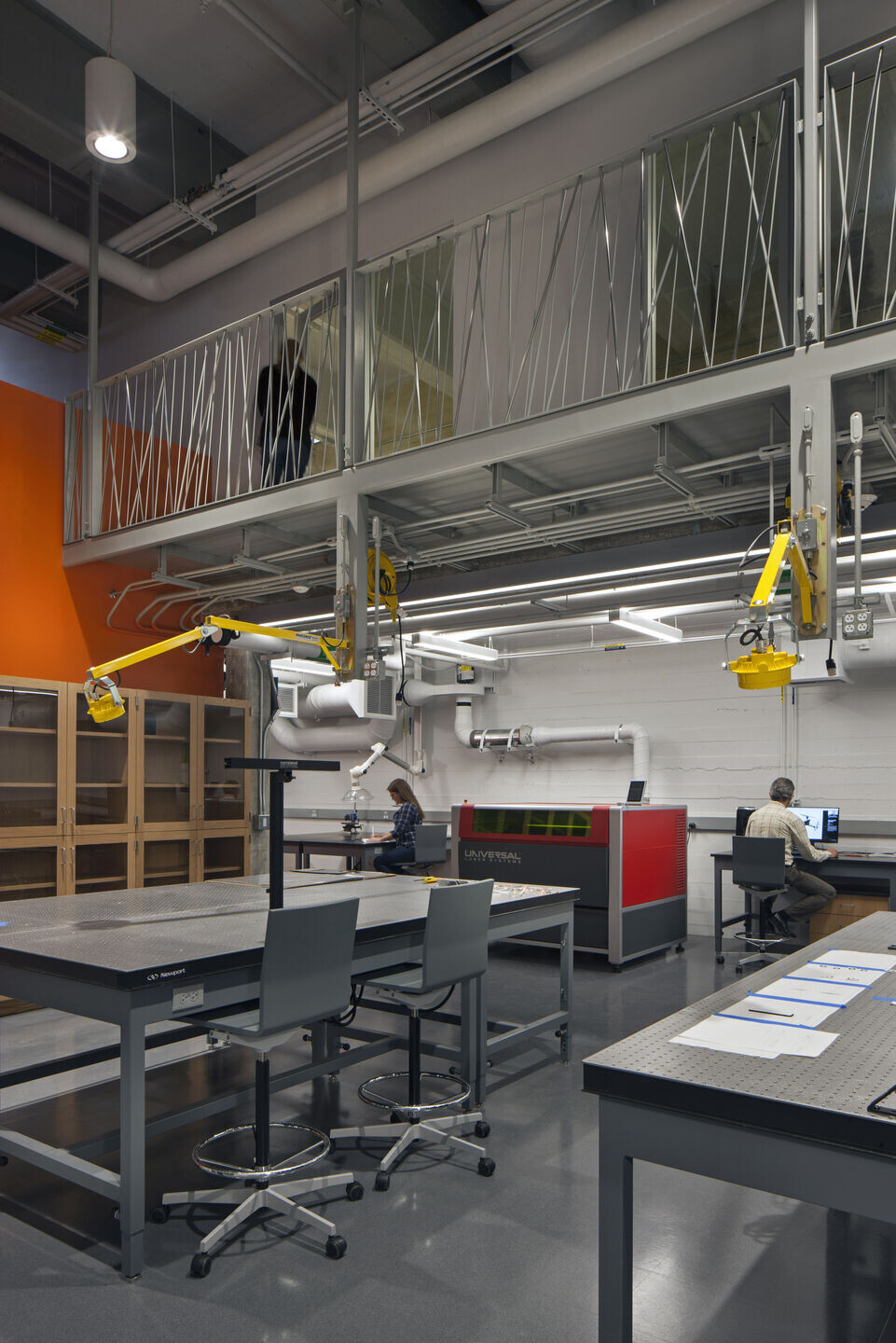
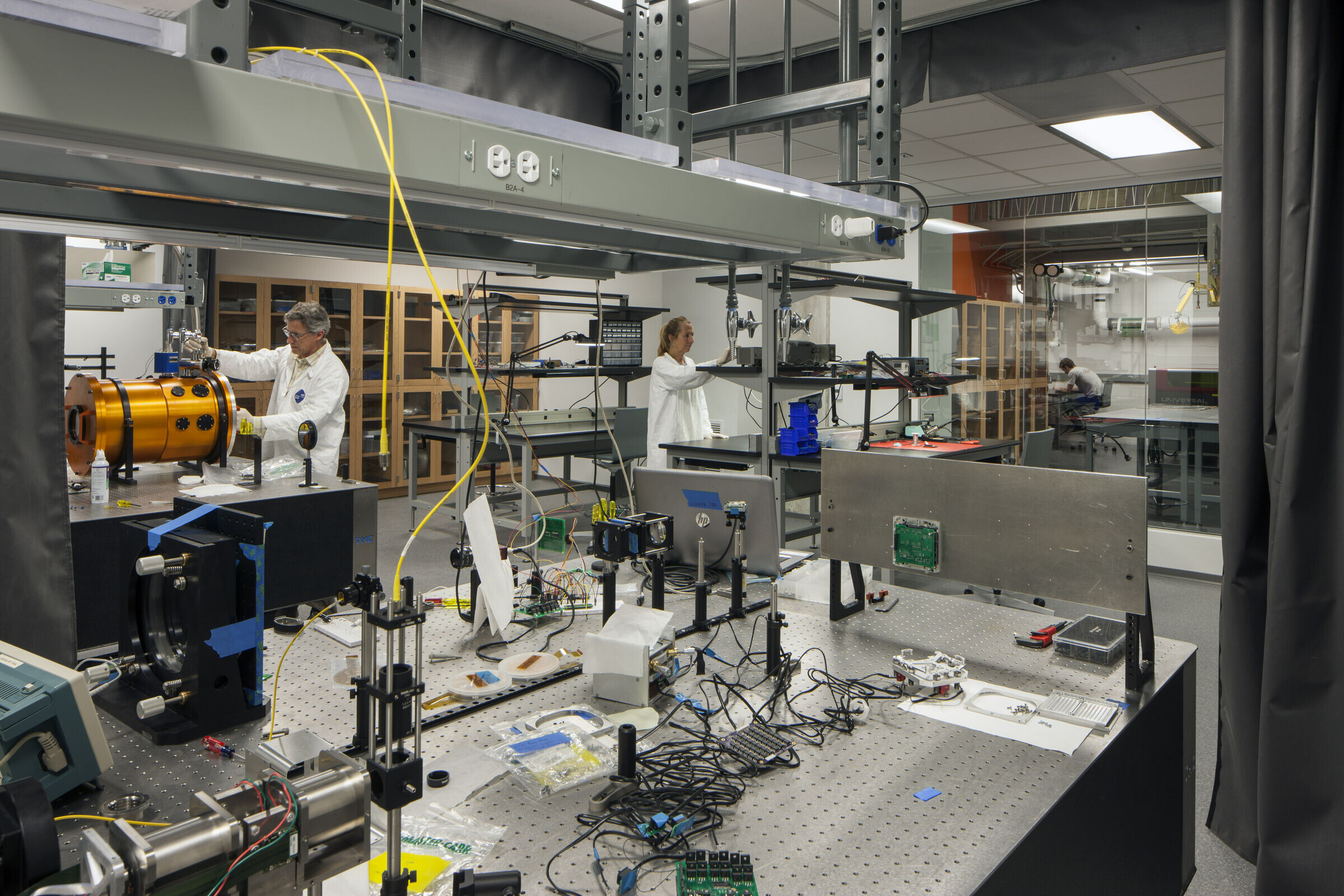
CO Architects Principal Andy Labov, FAIA, LEEP AP, is the firm's Science & Technology Director and led the design team. “Normally Caltech does fairly detailed drawings of labs showing the locations of all the equipment they want,” he says. with SSPI was the existing conditions: a two-story basement formerly developed to testing torpedo and submarine profiles with giant water flumes. MATT Construction meticulously cleared the space, giving the architects a clean slate.

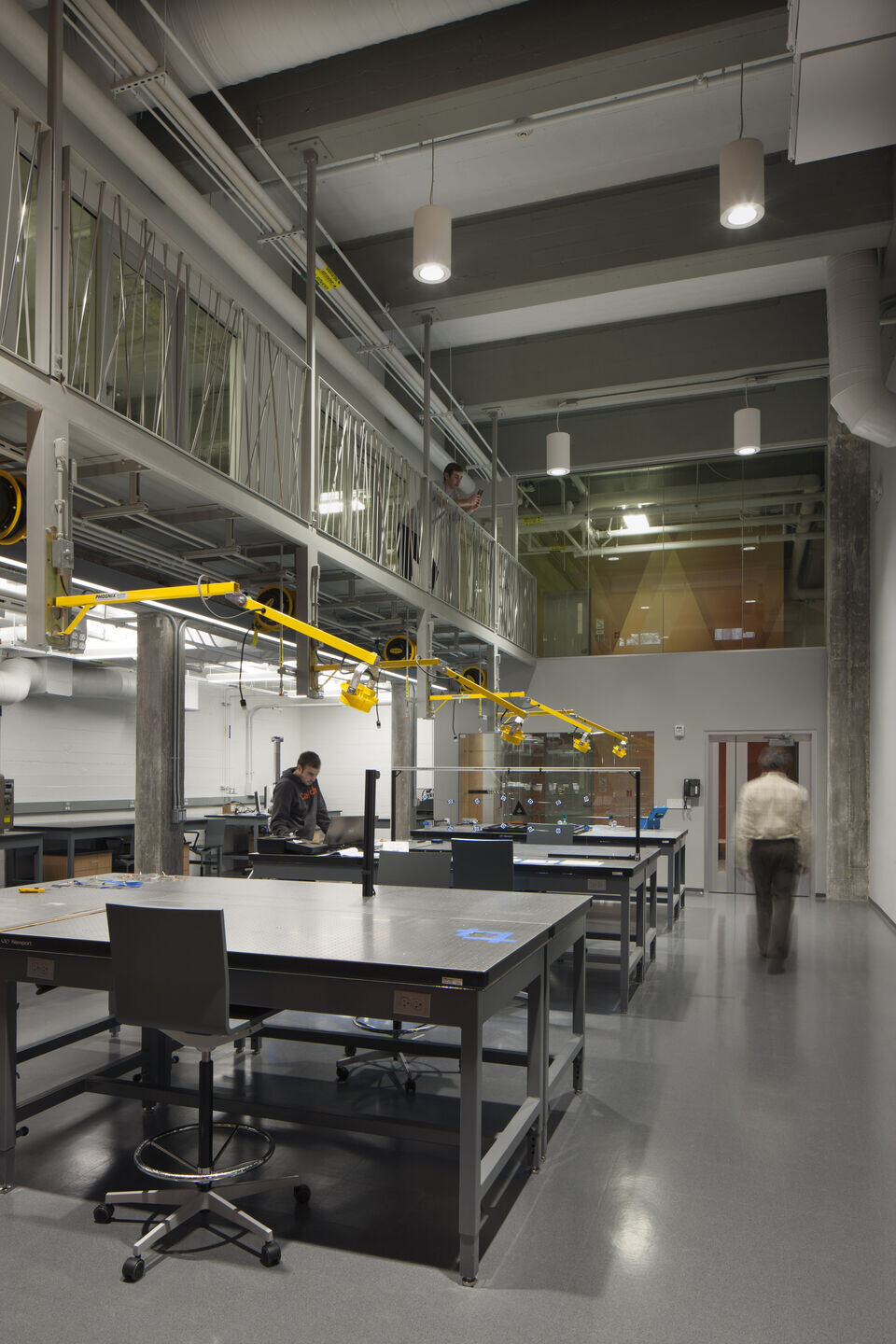
SSPI prompted CO Architects to reconsider how the firm approaches lab design. “We used to think of labs as wet or dry,” Labov says. For this project, CO defined a new type of lab--the spec lab. SSPI was realized as a flexible high-bay lab with three types of spaces: a tall two-story lab, a balcony/mezzanine lab, and a cleanroom with ductwork.
